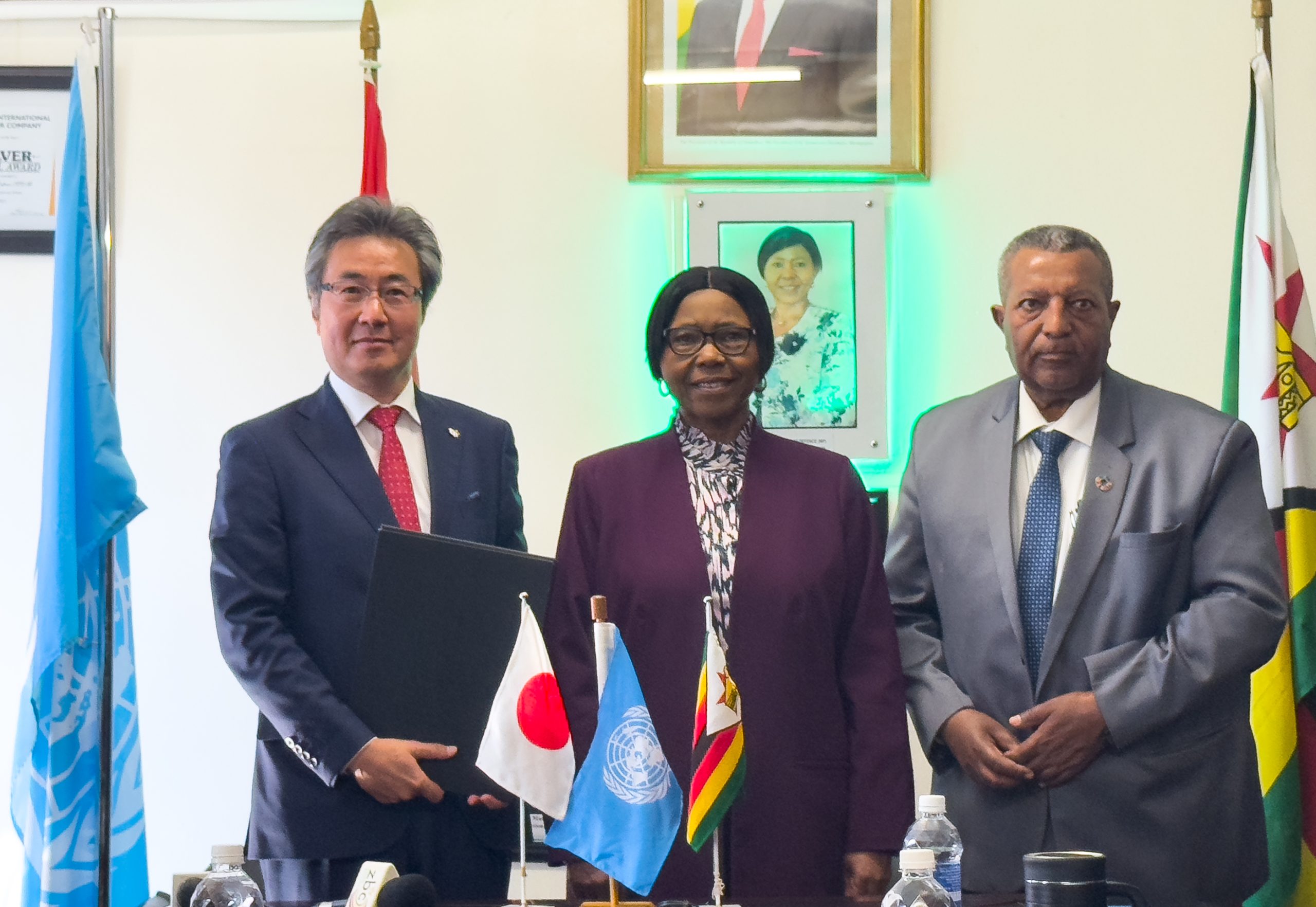HARARE, Zimbabwe — The government of Japan and the United Nations Development Programme (UNDP) have launched a $3.4 million initiative to accelerate landmine clearance and boost agricultural infrastructure in Zimbabwe’s border regions.
The new project — Enhancing Resilience of Communities through Mine Clearance and the Improvement of Agricultural Infrastructure — will focus on communities in the Rushinga and Mudzi districts, aiming to improve safety, support economic development and promote long-term peace and stability.
Japan is contributing $3 million, while UNDP is adding $400,000 to the project.
Landmines and explosive remnants of war have threatened border communities near Mozambique since Zimbabwe’s independence more than 40 years ago. Although the contaminated area has been reduced to about 12 square kilometers — roughly 4% of the original 310 square kilometers — it still poses a serious risk to nearby villages, farmlands and water sources.
“This project is about restoring hope and enabling development, not just removing deadly remnants of war,” said Shinichi Yamanaka, Japan’s ambassador to Zimbabwe, during the signing ceremony. “Through this assistance, we reaffirm our friendship and solidarity with the people of Zimbabwe.”
Japan currently holds the presidency of the Anti-Personnel Mine Ban Convention and is promoting global peace and human security through demining efforts. In addition to clearance, the initiative will rehabilitate cleared land for farming and support smallholder farmers using the Smallholder Horticulture Empowerment and Promotion (SHEP) approach.
The effort also supports Zimbabwe’s obligations under the Anti-Personnel Mine Ban Convention and its national development goals.
“The legacy of conflict has for too long held back the potential of Zimbabwe’s borderlands,” said Lealem Berhanu Dinku, UNDP’s deputy resident representative in Zimbabwe. “Integrating mine clearance with sustainable development, climate action and social cohesion creates pathways for communities to recover and thrive.”
The project includes explosive ordnance risk education, victim assistance and institutional support for the Zimbabwe Mine Action Centre (ZIMAC). Agricultural development will be led by the Ministry of Lands, Agriculture, Fisheries, Water and Rural Development, while the Ministry of Defence, through ZIMAC, will oversee implementation in partnership with HALO Trust and the Mines Advisory Group (MAG).



